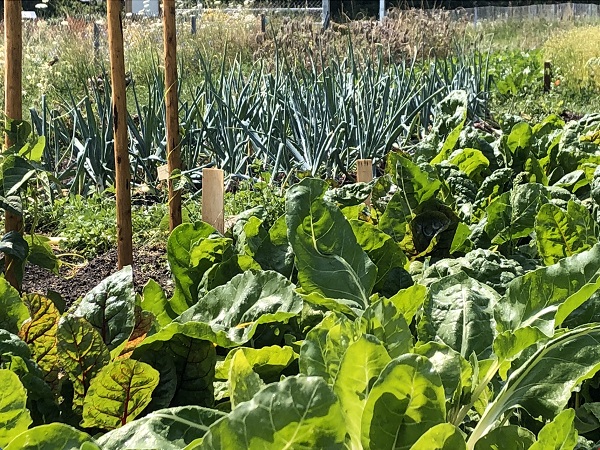 Credit: natur&ëmwelt
Credit: natur&ëmwelt
In the latest in a series of articles about current conservation issues, experts at natur&ëmwelt, a leading nature conservation NGO in Luxembourg, spoke to Chronicle.lu about agriculture and farming.
Natur&ëmwelt volunteer Claire Schroeder helped collect the relevant information from the NGO for this article.
Luxembourg is often imagined as a land of green fields, grazing cows and hard-working farmers - and for good reason. Agriculture may be small in scale, but it is deeply rooted in the country's economy, culture and way of life. Together, natur&ëmwelt and Chronicle.lu will explore what grows (and grazes) here, what challenges farmers face and how both they - and we - can shape a more sustainable future.
Chronicle.lu: How important is farming in Luxembourg?
Natur&ëmwelt: Very! Even though it makes up only a small slice of the national GDP, agriculture supports thousands of people. Around 1,300 farm owners and up to 4,000 farm workers keep about 1,800 registered farms running. It’s also the foundation of Luxembourg’s entire food industry - from milk in your morning coffee (thank you, Luxlait) to flour from Le Moulin and produce on the shelves at Cactus.
Chronicle.lu: What exactly is produced here?
Natur&ëmwelt: Mostly milk and beef. Luxembourg used to produce more beef than it could eat, but things have evened out. Milk, on the other hand, flows freely - about 20% more than we consume, so plenty for export. Pork and chicken make up just 10% of what we eat, and fruit and vegetables only 5%. Why? Our hilly landscape is better suited to grass and grazing than large-scale crop farming, and growing fruit and vegetables is more labour-intensive (and expensive) here than in neighbouring countries.
Chronicle.lu: Is farming just about food?
Natur&ëmwelt: Not at all. Agriculture is a living piece of Luxembourg’s cultural identity. Many farms have been passed down for generations and help shape our countryside. Unlike the vast, industrial farms seen elsewhere in Europe, Luxembourg’s smaller family farms protect the rural landscape and keep it, quite literally, green.
Chronicle.lu: Sounds idyllic - but what about the environment?
Natur&ëmwelt: Here's the tricky part. Cows, Luxembourg's main producers, are also methane machines - and methane is 27 times more potent than CO₂ while it lasts. Producing 1 kg of beef can take up to 10 kg of feed, and animal waste releases ammonia, which affects air quality and can pollute water if overused as fertiliser. Pesticides and fungicides also pose issues, harming insects and wildlife, while fungi are developing resistance, just like bacteria do with antibiotics.
Chronicle.lu: Surely, it cannot be all bad?
Natur&ëmwelt: Definitely not! Luxembourg’s farmers do a lot for the environment, too. They maintain open landscapes, prevent overgrowth and protect grasslands that store carbon - a hidden climate hero known as a "carbon well". Local food production also cuts down on transport emissions, keeps food fresh and supports regional self-sufficiency. And thanks to strict European agricultural rules, Luxembourg's farms already meet some of the world's highest standards for sustainability, animal welfare and food safety.
Chronicle.lu: How can we make farming more sustainable?
Natur&ëmwelt: It's a team effort. Farmers can use subsidies to diversify crops, reduce pesticide use and grow more fruits and vegetables. Projects like 2000m² (by IBLA, natur&ëmwelt and co-labor) show just how much land it takes to meet our food needs - and how precious agricultural land really is. As part of the same 2000 m² project, natur&ëmwelt has recently published a cookbook - Rethinking Cooking within the Limits of the Earth. The book features twelve seasonal recipes created with the support of local restaurants and aims to inspire more sustainable cooking practices. It's available in English and French at the Shop Nature in Kockelscheuer and in the participating restaurants across Luxembourg.
Chronicle.lu: What can consumers do?
Natur&ëmwelt: A lot! Our plates drive production. Eating less meat and buying more plant-based foods helps shift demand toward sustainable farming. Choosing local produce, even if it costs a bit more, supports Luxembourgish farmers and reduces the environmental footprint of food transport. And the best tool we all have? Information. Knowing where and how our food is produced helps us make choices that are better for the planet and for the people who work the land.








